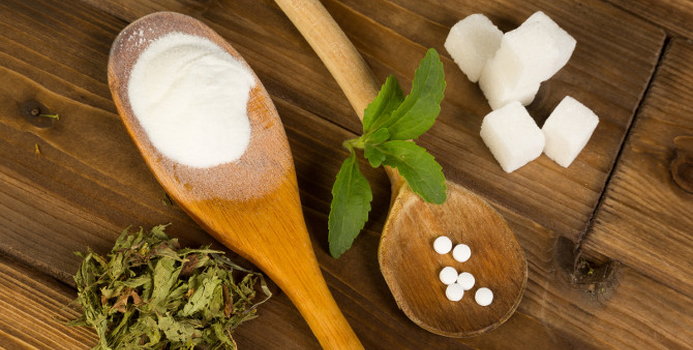While the U.S. Food and Drug Administration (FDA) has deemed purified stevia sweeteners as generally recognized as safe, potential health concerns may still exist. If you're thinking about using stevia or products containing stevia, it's important to become familiar with the benefits versus potential risks.
Is Stevia Safe?
According to the FDA, highly-refined stevia preparations, such as rebaudioside A and stevioside, are generally recognized as safe for consumption. Products containing these highly-purified ingredients derived from stevia leaves include Truvia, PureVia, and Enliten.
Which Stevia Products are Not FDA Approved?
The FDA has not deemed crude stevia extracts and whole stevia leaves as safe, and these products are not permitted for use as sweeteners in the U.S. The FDA notes that these stevia substances are not approved because of concerns reported in research studies about possible negative effects on reproductive, heart, and kidney health.
Possible Health Risks
While highly-purified stevia products are deemed safe by the FDA to use as sweeteners when eaten in moderation, some studies do show potential concerns. A review published in 2011 in the Journal of Pharmacology and Pharmotherapeutics reports that rats fed high doses of stevia had lower sperm production and increased risks for infertility -- and that stevia may theoretically promote cancer. However, authors of this review suggest that stevia sweeteners, when eaten in moderation, are safe for people of all ages. Another review published in 2013 in Trends in Endocrinology and Metabolism found that regular consumption of artificial sweeteners increases your risk for type 2 diabetes and heart disease.
Effects on Body Weight
Though it may seem counterintuitive because artificial sweeteners like stevia are calorie-free, numerous studies show that these sweeteners actually promote weight gain. The review published in 2011 in Journal of Pharmacology and Pharmotherapeutics suggests that artificial sweeteners lead to weight gain because the sweet taste they provide causes you to eat more. The review published in 2013 in Trends in Endocrinology and Metabolism also found that artificial sweeteners increase your risk for gaining weight.

An experienced health, nutrition and fitness writer, Erin Coleman is a registered and licensed dietitian and holds a dietetics degree from the University of Wisconsin-Madison. She also has worked as a clinical dietitian and health educator in outpatient settings. Erin's work is published on popular health websites, such as TheNest.com and JillianMichaels.com.



